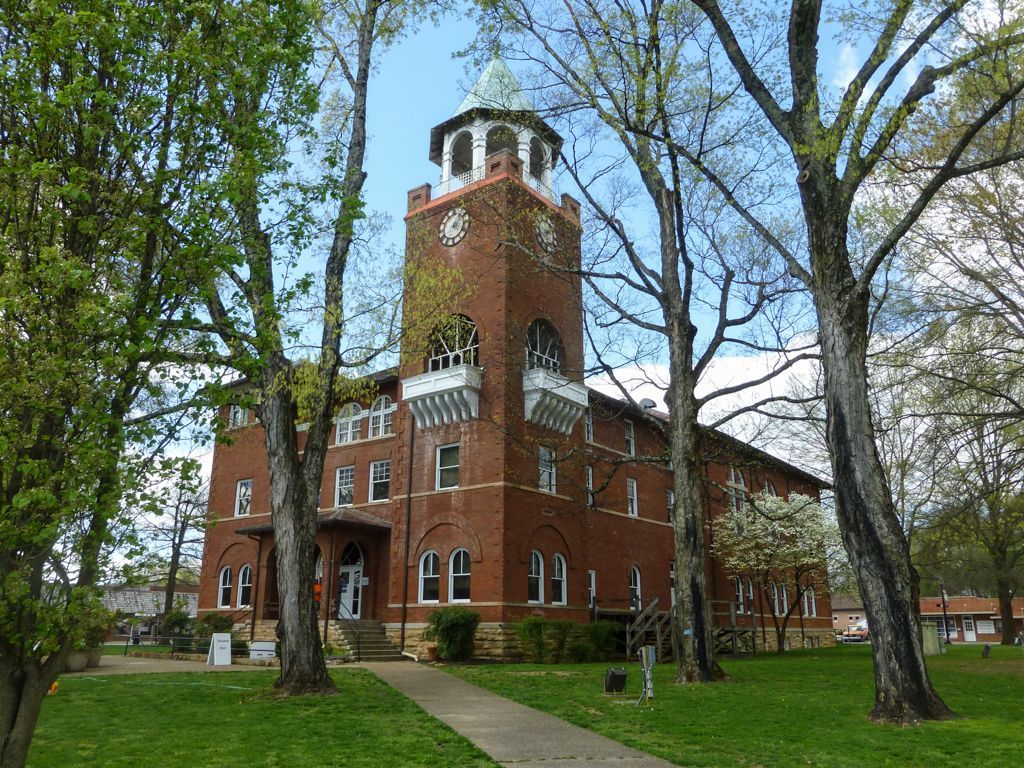
It’s not unusual for someone to ask; “why does God allow evil things to happen?” This is an especially popular question for non-believers. They will even use this as an argument against God’s existence. But this question isn’t posed only by non-believers; followers of Jesus may ask the same question. A very high level answer is we don’t know specifically why God allows certain evil events to happen. As finite beings, we cannot get into the mind of our infinite Creator. God knows all (omniscient), sees all (omnipresent), is all-powerful (omnipotent), and is omnibenevolent. It’s futile of us to think we can comprehend completely the way God works. That would put us on the same level as God! However, there are some things we can understand of why evil things happen. Let me note, there are scores of books written on reconciling God and evil. What I offer is a tiny inkling on the topic. First, you cannot have evil in the world without good. Evil is simply a privation of good. Second, it order for us to love completely free, God has allowed us to possess free will. If God didn’t allow us free will, we would simply be some sort of pawns in His creation. God will not force anyone to love Him. So it follows since we have the choice on whether to love God or stray from Him, evil things will happen in this world. Do we all commit some kind of evil (sin)? Yes! (Rom. 3:23). Are there different levels of evil? Yes! (Jn. 19:11). But why allow something like the recent murder of Charlie Kirk? First we must understand Kirk was martyred. He was standing up for the truth of Christ. This is a horrific tragedy! But it’s not uncommon. It may be to us in the U.S. because we simply don’t hear much of it. We are rather isolated from these type of terrible acts. However, in other parts of the world, it is not uncommon for followers of Christ to be ostracized, beaten, or martyred for standing up for His truth. Rewind 2,000 years as church tradition has it, all apostles were martyred with the exception of the apostle John. These are the men who were walking with Jesus for 3-plus years. These are the men Jesus told to build His Church. Why would God allow these men to be martyred? Think about it. . . if Christianity were not true, if Jesus wasn’t resurrected, if Jesus is not the way, truth, and life; why would these men go to their deaths for a lie? Perhaps, this is one reason God allowed these martyrs to take place—to show the evidential truth in Christianity. We can also lean on Romans 8:28 when wondering about evil events; “We know that all things work together for the good of those who love God, who are called according to His purpose.” Notice Paul did not write all things are good. He wrote God works all things for good. God, in His sovereignty, knows the good that will result from evil events. God uses these events for good for those who love Him. Perhaps we will never see it. Perhaps it’s 2, 5, 10 years in the future. But God is not bound by time. In His perfect timing, all things are worked together for His good purposes. Ultimately we trust God remains in control. Maybe things don’t look the way we want them to. But He is sovereign. And He displayed His perfect love on the Cross so that we can be reconciled to Him.

July 21st 2025 marked the 100 year anniversary for the conclusion of the Scopes trial. If you are not familiar with the Scopes trial, it marked a significant change in the public school system. At the time, several states were considering passing a law to prohibit an evolutionary view taught in the public school systems. Tennessee actually signed this into law, called the “Butler Act.” The American Civil Liberties Union did not take well to this idea, taking the position that “Darwinian” evolution should not be deserted and at minimum should be taught in conjunction with a Biblical view. Darwinian evolution in its basic sense claims all life stems from a single natural source developed over millions of years. Ultimately John Scopes was to stand trial as the defendant in the case for teaching evolution against the Butler Act (with support from the ACLU). Without diving into details of the Scopes trial, it’s important to note this was seemingly an act of two-fold publicity. First, the trial was economically beneficial for the small town of Dayton, TN. Secondly, the goal was to get recognition throughout the country that the Biblical creation view should be abandoned and Darwinian evolution should be the standard taught in the school system. The defense succeeded in this act by getting a Bible “expert,” William Bryan (who was the prosecuting attorney in the case—strange huh?), to admit under oath he did not completely conform with God creating the universe in six literal days. Bryan admitted it could have been millions of years in the making. This is exactly the news the defense wanted to spread. After eight days, the defense lost the trial (which they wanted to, so they could appeal to the Supreme Court). But ultimately they won in two ways: First, word spread rapidly that the Bible expert could not defend the Biblical view of creation. Second, in 1967 state legislation overturned the “Butler Act.” Even though it would be decades before the law was repealed, the damage was started in 1925. God was being diminished in schools. Sadly, the removal of teaching Biblical creation in schools and shifting to an evolutionary view, produced many consequences. Without the view of a Sovereign Creator, accountability to God loses any appeal or respect. Without accountability, moral relativism infiltrates society. This leads to a whole slew of cultural ideologies we face today. I do recognize these ideologies are not completely new issues in the last century. However, the Scopes trial was seemingly the beginning for removing God from the educational system. The trial was instrumental in permeating atheism into the public school system. Creation as recorded in Genesis was “discredited” and Darwinian evolution was taking precedent. Most atheistic scientists have since turned from Darwinian evolution and the theory that the universe is eternal. They now contend the universe had a beginning (the Big Bang). They simply will not admit it’s caused by a transcendent Being (God). But even if you hold to this theory, you still cannot escape the need for a Big Banger! Either some-thing or no-thing created and set the universe into motion. You don’t have to think very long to understand that “no-thing” can accomplish this. Therefore, it had to be some-thing outside of the universe to create it. We must understand this isn’t a matter of incompatibility between science and the Bible. It’s a matter of authority. While most atheists may not readily admit they don’t want there to be a God, this is why they are supporters of some form of evolution. It seems they simply do not want to submit to God’s authority. As for creation, it is written, “For by Him all things were created, both in the heavens and on earth, visible and invisible, whether thrones or dominions or rulers or authorities—all things have been created through Him and for Him” (Col. 1:16). As followers of Jesus we must stand boldly with Biblical truth; especially in the presence of cultural opposition.

Did the writers of the New Testament simply copy and graft in ancient god stories to fit with the stories recorded about Jesus? Did Jesus adapt these stories and use them to describe Himself and His ministry? This is the claim some skeptics of the Bible make in order to dismiss the historical account and deity of Jesus of Nazareth. Following is a brief overview of some claims made to align Jesus with the gods Mithras, Osiris, and Horus. Each are claimed to fall into the virgin birth, baptized at the age of 30, crucified, resurrected on the third day, and/or performed miracles categories. First up—Mithras, the sun god. Mithras was born out of solid rock, not of a virgin. There are shepherds in the birth narrative, but oddly these shepherds were supposedly before humans inhabited the earth. More interestingly, these stories were not circulated until more than a century after Jesus. Mithras is said to have performed miracles. This is nothing special since most, if not all, gods are said to have performed miracles. There is nothing in the Mithras accounts that he ever died. So it is reasonable to ask how can one be resurrected if he never died? Next—Osiris, god of the afterlife (and many other). The birth of Osiris was announced by three stars; Mintaka, Anilam, and Alnitak which are placed in the belt of the Orion constellation. This is simply odd mythology. This is not nearly the same as an announcement by the Magi. Osiris was killed, his body was dismembered, and scattered. Some time later all the body parts were rejoined and Osiris descended to the underworld where he became the lord of the dead. There is no resurrection account to a glorified body and certainly no ascension to heaven account. Jesus is sovereign over all creation and will judge the living and the dead (2 Tim. 4:1). Lastly—Horus, great sky god represented as a falcon. Some claim Horus was born of the virgin Meri. But according to murals, Horus was born of Isis and Osiris, not Meri. Perhaps Isis was a virgin, but Horus was conceived by normal sexual means between two gods. Horus was not immaculately conceived. According to Egyptian mythology, Horus was born in a swamp, not a cave (as some claim) and certainly not in a manger. Another parallel that is claimed is he was baptized at the age of 30 by “Anup the Baptizer.” But there is no record of this in the recorded accounts. Finally, Horas was not crucified between two thieves to pay the debt for the sins of the world. Horas is generally recognized as becoming one with Re, the sun god. At that point, Horas dies and is “reborn” everyday when the sun sets and rises. These are just a few examples of how these mythological gods fail to compare to Jesus. Because some don’t want to recognize Jesus as the Messiah, they offer conjecture to explain away reality—they suppress the truth (Romans 1:18-25). Jesus is unique because God the creator added humanity to His deity so that He could take away the sins of the world (John 1:29; 1 John 3:5). Try as some might, there are no mythological or historical comparisons that align with the life, ministry, death, resurrection, or ascension of King Jesus. The Biblical accounts of Jesus are just as reliable today as they were when they were penned nearly 2,000 years ago. Christ Jesus is the same yesterday, today, and forever (Hebrews 13:8).

The Seven Most Important Seconds of a Welcoming Church At the Catalyst workshop we held this March 15th. Anja shared with me that on Sunday, we only have 7 seconds for a visitor to decide whether or not to return to our church. And if those 7 seconds that made a good impression on a visitor aren't genuinely reaffirmed Sunday after Sunday as a congregation, can we say we care? Having the best church growth strategies will be useless if we fail to get visitors to return. Our most important goal is not to give visitors a warm welcome and make them think we're a "nice church." We should all know that the purpose of coming to church is to worship God, give Him thanks, and strengthen our relationship with Christ. Therefore, sharing the love of Jesus is the most important thing, and that must be born in our hearts. We can Google and find plenty of advice on The Dos and Don’ts of Welcoming First-time Guests, and we can learn and work on it, but our task depends on whether we truly show that we care and that we will guide them to find and know Jesus Christ as their savior.about whether we are willing to dedicate time and effort to help them know God our Lord, learn to follow Jesus Christ and experience how the Holy Spirit dwells in them.So, we only have 7 seconds. If you have a heart to serve and want to show God's love, plan to be one of FMC's 7 Seconds Entrepreneur Watchers. Start praying today and decide to act. We only have 7 seconds for God to transform a life... Jesus is counting on you! Revelation1:1a, 3 The Revelation of Jesus Christ, … Blessed is he who reads and those who hear the words of this prophecy, and keep those things which are written in it; for the time is near. The seven churches of revelation hold significant historical and spiritual value, as they represent early Christian communities addressed in the Book of Revelation. Understanding these churches will help us grasp the challenges faced by early believers and their enduring relevance today. Why the book of Revelation? And why are we going to study the Letters to the Seven Churches in the book of Revelation? The Church of Christ must be a church capable of overflowing and growing exponentially like the early church in Acts. Why isn't this happening today, or are we not experiencing it as early church did in the first century? In Revelation, the last book of the Bible, Jesus' words to the seven churches remain as relevant today as they were in the first century. These seven letters from Jesus to the churches of Revelation contain messages of warning and encouragement for churches that historically suffered persecution, were influenced by paganism, or were exposed to cultures hostile to the faith. And we find ourselves in similar circumstances, especially in times where defection from the Christian faith is increasing. The younger generations are not being guided in the truth and are searching for that TRUTH. Therefore, our role in this city, in these times, becomes crucial. The Seven Churches of Revelation* Historical Context of the Seven Churches The seven churches of revelation were located in Asia Minor, modern-day Turkey. In the first century AD, these cities—Ephesus, Smyrna, Pergamum, Thyatira, Sardis, Philadelphia, and Laodicea—were centers of trade, culture, and administration. This geographical and historical landscape laid the foundation for the messages received by each church. Each church faced unique challenges, influenced by local beliefs, spiritual practices, and societal pressures. Understanding these factors is crucial in interpreting the messages given to each congregation. What challenges did the seven churches face? The seven churches of revelation faced challenges such as persecution, cultural pressures to conform, internal struggles with morality, and a dangerous drift away from passionate faith. Each church’s situation reflected unique circumstances that tested their commitment to Christianity. Can the seven churches of revelation inform our understanding of modern churches? Yes, the experiences and lessons of the seven churches provide valuable insights for today’s churches, particularly regarding community engagement, authenticity in worship, and resilience in faith amidst trials. *Adapted from: https://oracioncristiana.org/en/the-seven-churches-of-revelation/

Dear brothers and sisters, I pray that as you read this letter, you are experiencing the peace and joy of God, knowing that you are in our prayers and in our hearts. We know that life is sometimes not easy, because every day we face challenges that sometimes seem insurmountable. Perhaps there are times when we feel alone or feel like we are not doing enough to give meaning to our lives. In the Bible, we find stories of many who experienced challenges in their lives, whether serving God or waiting on Him. Most lived in silence before God for periods of time; they prayed, cried out, for many months or perhaps years, and nothing. However they did not give up, they did not listen to the lies of the adversary or the fatigue of their hearts. They simply waited and did what God told them: Trust in me, wait for me, abide in me. I can tell you that after this time of silence, challenges, or perhaps uncertainty, a victory in Jesus awaits us. Think of how a seed, underground, awaits the arrival of life, a seed that will grow to bear fruit, the seed that does not give up and struggles in the darkness to discover the life God created in it. For God gave us a spirit not of fear but of power and love and self-control. 2 Timothy 1:7 Our Christian life is full of challenges, but do not forget that in the midst of it all, God promised to always be with us. So let us believe it, embrace it, fight for it, keep it in our heart. Remember, Jesus felt forsaken at the cross, "Eloi, Eloi, lama sabachthani?" —which translated means: "My God, my God, why have you forsaken me?"—and then he died; but three days later he rose again victorious, He lives, and He lives in you. God has not abandoned you, you are not alone, hope is real and the best is yet to come. Persevere in faith, stand firm, let us keep fighting because victory comes from God. victory is in Jesus Christ. Amen. P. Daniel

Why do we call Scripture the Word of God? Who can make the valid claim the words we have recorded in the Holy Bible are actually the words given through inspiration from the Creator of the universe? Weren’t the documents we have in the Bible written by fallible human beings? These are not unusual thoughts or questions. In a brief explanation I will provide valid reasons for believing the words recorded and sustained in the Holy Bible are God’s true revelation to us. First, we have no reason to doubt the events in the Holy Scriptures are not accurate recordings. Historical scholars who are Christian and non-Christian agree the recordings we have in the Holy Bible are genuine historical writings. Any disagreements between scholars usually comes within the miracle accounts. Those who deny miracles, also deny the existence of being a that created the universe—God. But as a Christian, we must recognize if Genesis 1:1 is true (and it is)—In the beginning God created the heavens and the earth—then everything else recorded in the Bible is plausible. Second, we recognize the entirety of the sixty-six books of the Bible are a unified story that point to Jesus. Let me be clear that not everything in the Bible is about Jesus, but the collection of writings point to Jesus. This point is important for the understanding that the Scriptures are inspired by God. Since Jesus is recognized as the Messiah, the Christ, each book of the Bible should seemingly point to the salvation plan. Third, when Jesus arrived on the scene and began His earthly ministry in the first century, He referenced the Old Testament (covenant) many times. Not only did He reference the Scriptures but He claimed them to be God’s words. Take these statements from Jesus as examples; “It is written: Man must not live on bread alone but on every word that comes from the mouth of God” (Matt. 4:4 [CSB]) and “For truly I tell you, until heaven and earth pass away, not the smallest letter or one stroke of a letter will pass away from the law until all things are accomplished (Matt. 5:18) ( emphasis added ). Jesus also used many “haven’t you have read” statements (Matt. 12:3, 5, 19:4, 22:31; Mk. 12:10, 26; Lk. 6:3). Again, referencing the Scriptures as God’s words. Why should we trust Jesus that the Scriptures are God’s word? Jesus proved His deity over and over again. As a matter of fact when John the Baptist sent men to ask Jesus if He is truly the Messiah, Jesus responded, “Go and report to John what you have seen and heard: The blind receive their sight, the lame walk, those with leprosy are cleansed, the deaf hear, the dead are raised, and the poor are told the good news” (Lk. 7:22). But ultimately it is the resurrection from the grave that solidifies the deity of Jesus. Jesus told His disciples numerous times He would be killed and on the third day He would be raised from the grave (Matt. 16:21, 17:23; Mk. 9:31). Because of Jesus’ deity and resurrection we can trust the Scriptures as God’s Holy inspired Word.
